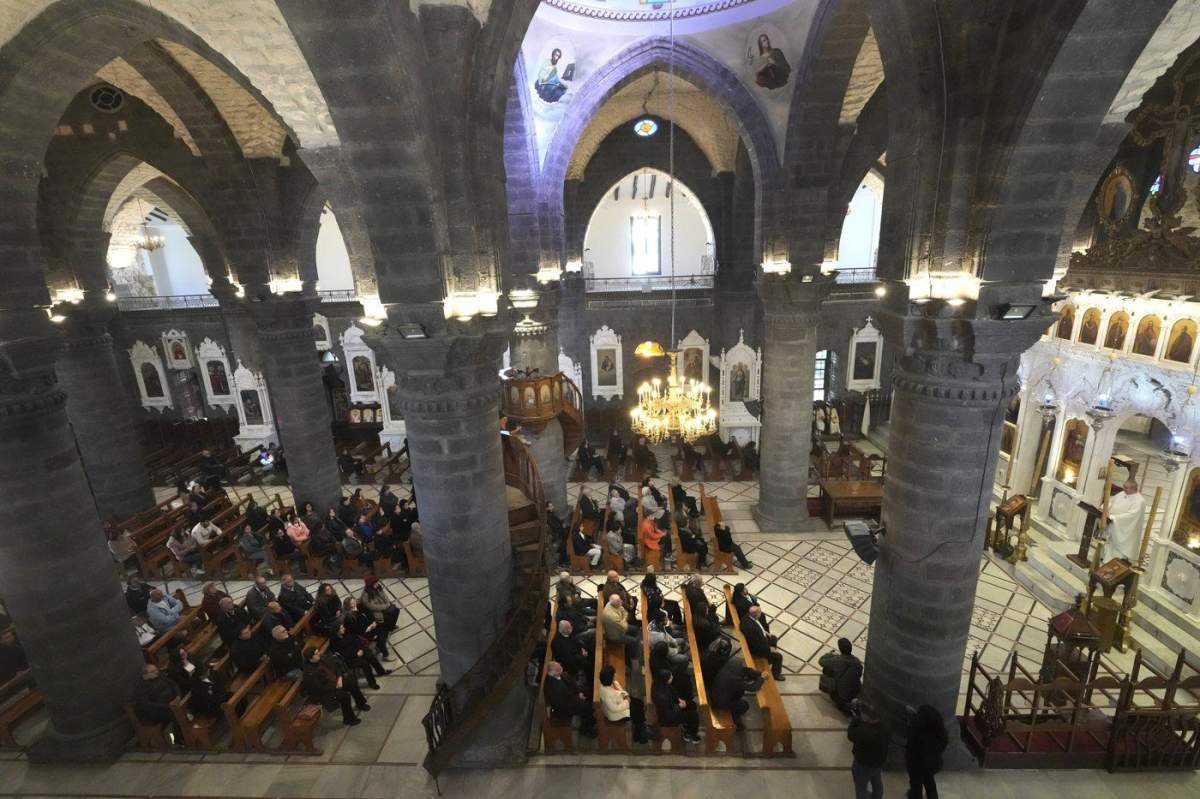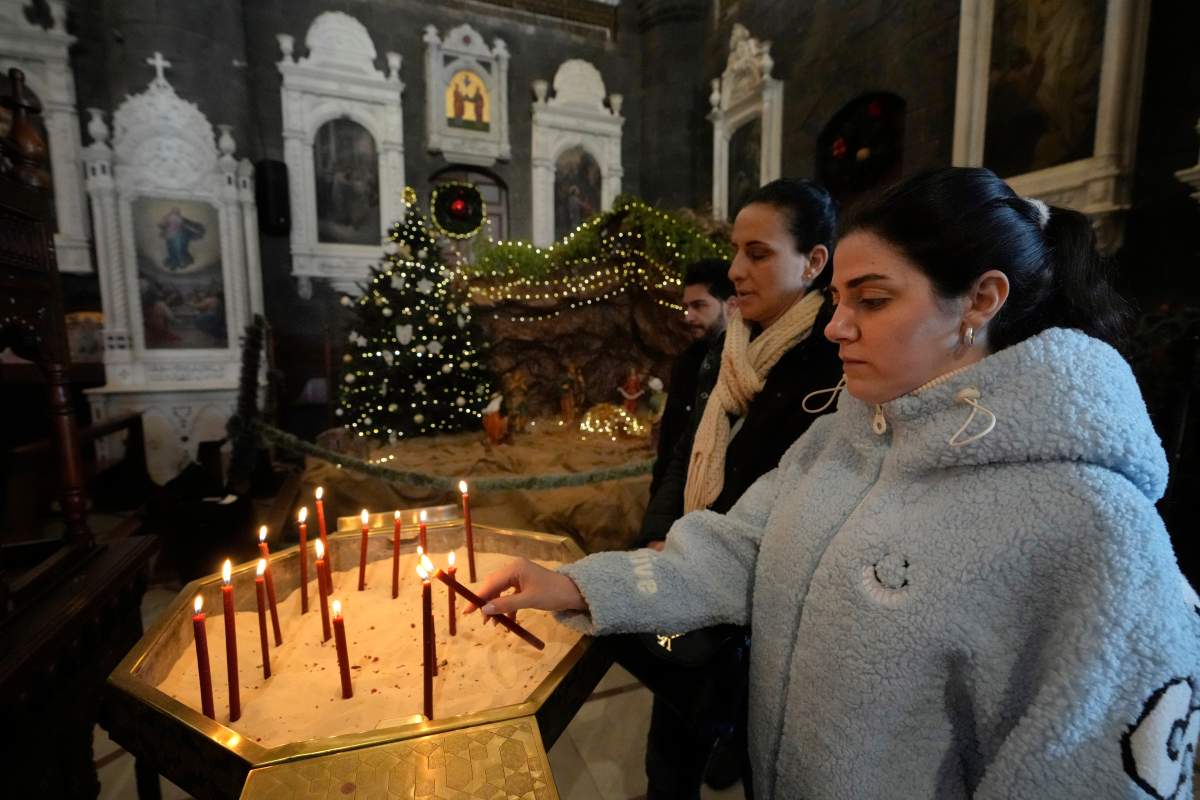In churches across long-stifled Syria, Christians marked the first Sunday services since Bashar Assad’s ouster in an air of transformation. Some worshippers were in tears. Others clasped their hands in prayer.

“They are promising us that government will be formed soon and, God willing, things will become better because we got rid of the tyrant,” said one worshipper, Jihad Raffoul.
“Today, our prayers are for a new page in Syria’s future,” said another, Suzan Barakat.
To help those efforts, the U.N. envoy for Syria called for a quick end to Western sanctions as the country’s new leaders and regional and global powers discuss the way forward.
Syria has been under sanctions by the United States, the European Union and others for years as a result of Assad’s brutal response to what began as peaceful anti-government protests in 2011 and spiraled into civil war.
The rebel alliance that ousted Assad and sent him into exile in Russia a week ago faces a nation deeply isolated by the sanctions, which compounded Syria’s economic troubles.
But other challenges also complicate rebuilding. The new transitional leadership has not laid out a clear vision of how the country will be governed, and the main group behind the offensive remains designated as a terrorist organization by the U.S., which nevertheless has begun making direct contact with it.
The U.N. envoy to Syria, Geir Pedersen, told reporters in Damascus that the rebels’ stunningly fast offensive should be followed by a rapid international response.

Get daily National news
“We can hopefully see a quick end to the sanctions so that we can see really a rallying around building of Syria,” he said.
Parts of Syria’s biggest cities are damaged or destroyed by years of fighting. Reconstruction has been stymied largely by the sanctions that aimed to prevent rebuilding of infrastructure and property in government-held areas in the absence of a political solution.
The U.N. envoy was meeting with officials from the new interim government set up by the former opposition forces who toppled Assad, led by the Islamic militant group Hayat Tahrir al-Sham, or HTS. Officials in Washington have indicated that the Biden administration is considering removing the group’s terror designation.
Over the weekend, U.S. Secretary of State Antony Blinken attended an emergency meeting in Jordan with 12 foreign ministers from the Arab League, Turkey and top officials from the European Union and United Nations on how Syria should be run after a half-century of Assad family rule.
They agreed that the new government should respect the rights of minorities and women, prevent terror groups from taking hold, ensure humanitarian aid reaches those in need and secure and destroy any remaining Assad-era chemical weapons.
Syria’s interim government is set to rule until March, but it has not made clear the process under which a new permanent administration would replace it. Arab foreign ministers have called for U.N.-supervised elections based on a new constitution approved by Syrians.
“We need to get the political process underway that is inclusive of all Syrians,” Pedersen said. “That process obviously needs to be led by the Syrians themselves.”
He also called for “ justice and accountability for crimes” committed during the war, as some families continued to search for the tens of thousands of people that Assad’s government had placed in prisons and detention facilities.
Many Syrian Christians, who made up 10% of the population before Syria’s civil war, had either fled the country or supported Assad out of fear of Islamist insurgents. Last Sunday’s church services were canceled.
“We were scared of the events taking place,” said Ibrahim Shahin, a Catholic church supervisor.
But this Sunday, doors reopened and bells rang out.
In another sign of Syrians’ yearning for normalcy after the whirlwind of events, schools in Damascus reopened Sunday for the first time since the insurgents marched in the capital.
At Nahla Zaidan school in the Mezzah neighborhood, teachers hoisted the three-starred revolutionary flag in place of the former government’s two-starred one.
“Although I think some of them are afraid, they came to build Syria and to live the victories of this country,” said Maysoun Al-Ali, the school director. “God willing, there will be more development, more security and more construction in this beloved country.”









Comments